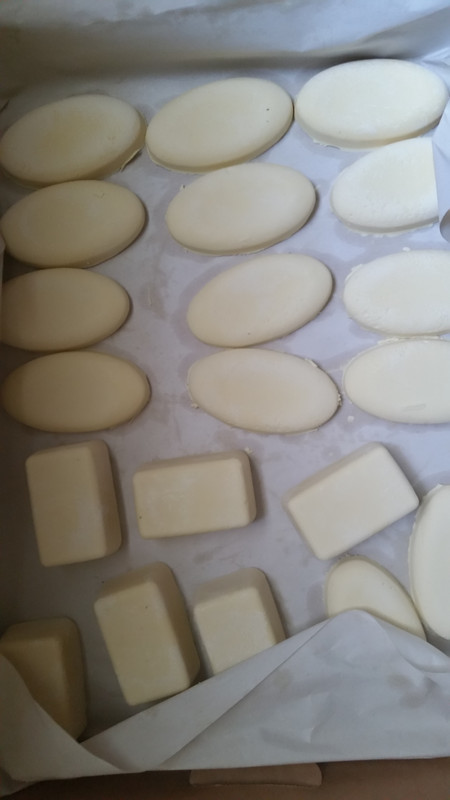Here is my recipe that I have been using (cold process) but the soap feels harsh, meaning it dries out the skin quick
Am I using to much lye?
Thank You!
20oz coconut oil 1.25lb
20oz olive oil 1.25lb
18oz goat's milk 1.25lb
9 oz lye
13oz lard
First, where did you get this recipe? Second, did you use a
lye calculator? Did you factor in the saponfication value of goat milk? (reference
here about saponification value for goat milk.) Did you do a zap test? If so, what was your result? I would expect this soap to zap because my calculations using a
lye calculator and Dr. Dunn's findings shows this would be lye heavy.
Using Dr. Dunn's lower figure of 4% of lye is consumed by goat milk (he said 4-6%), and using a
lye calculator, it looks to me like you ended up with lye heavy soap.
Yes, that's a - 6 % SF, meaning, it is lye heavy. (I am taking into account the extra fat in the GM.) My calcuations might be slightly off, but I think they are either correct, or at least I hope very close.
You should always use a
lye calculator, such as
soapee or
soapcalc before you use any soap recipe, whether you found it in a book, online, or design it yourself.
Also at 38% CO, I would expect a harsh soap, even if it wasn't lye heavy and even with sufficient cure. That's really high in the 'cleansing' (meaning it strips the skin's natural oils). Some people's skin can handle a high CO soap, but usually they use a higher SF (not a negative SF) to offset the harshness of saponified CO.
Looking back at your introductory post, I see that was the same recipe you posted over a year ago. Is this the same soap you made last year? Have you made it more than once? How long have you been using this recipe and this soap? Just curious about the history of your use and making of this recipe.
















































